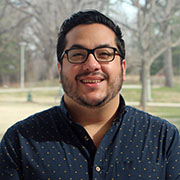Webinar for Postdoctoral Research Associate Training (PRAT) Program Applicants
We’re hosting a webinar for students and fellows interested in the Postdoctoral Research Associate Training (PRAT) program for the October 4, 2021, receipt date:
Tuesday, June 22, 2:00-3:00 p.m. ET
PRAT is a competitive 3-year fellowship program that prepares trainees for leadership positions in biomedical careers. Training includes a mentored laboratory research experience and intensive career and leadership development activities. PRAT fellows conduct research in laboratories in the NIH Intramural Research Program (IRP) in basic biomedical research areas within the NIGMS mission. These areas include, but are not limited to, biological chemistry, biophysics, bioinformatics, cellular and molecular biology, computational biosciences, developmental biology, genetics, immunology, neuroscience, pharmacology, physiology, and technology development.
Graduate students considering postdoctoral research opportunities at NIH, or current NIH Intramural Research Training Award postdoctoral fellows who started no earlier than June 1, 2020, are eligible to apply. All applications require connecting with an investigator in the NIH IRP in advance of writing the application.
Slides will be posted on the PRAT webpage following the event.
We look forward to talking with you about the PRAT program.


